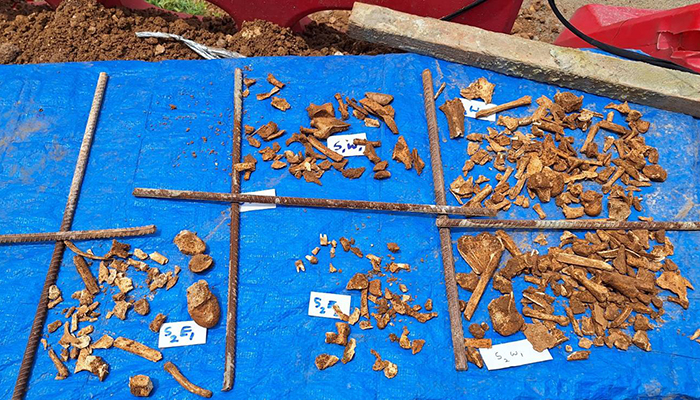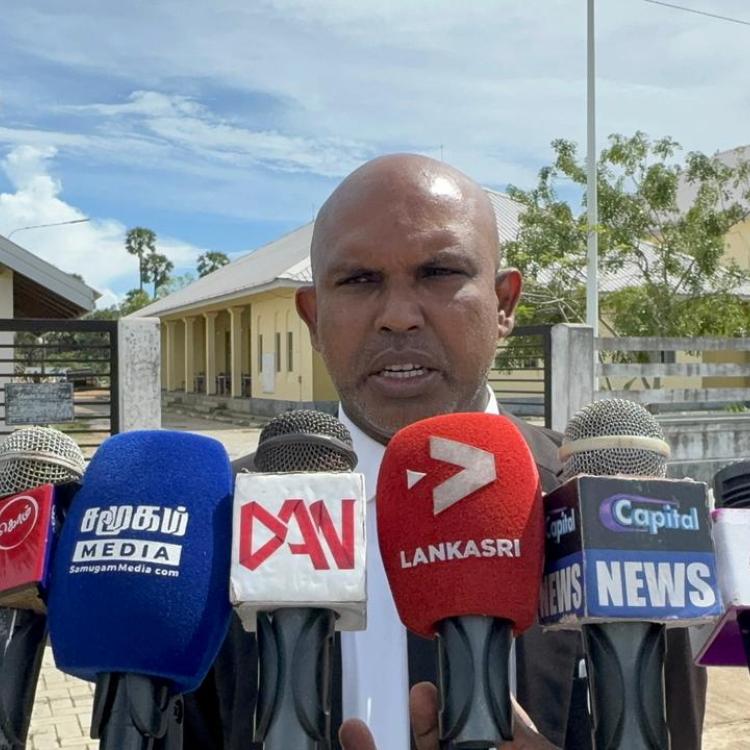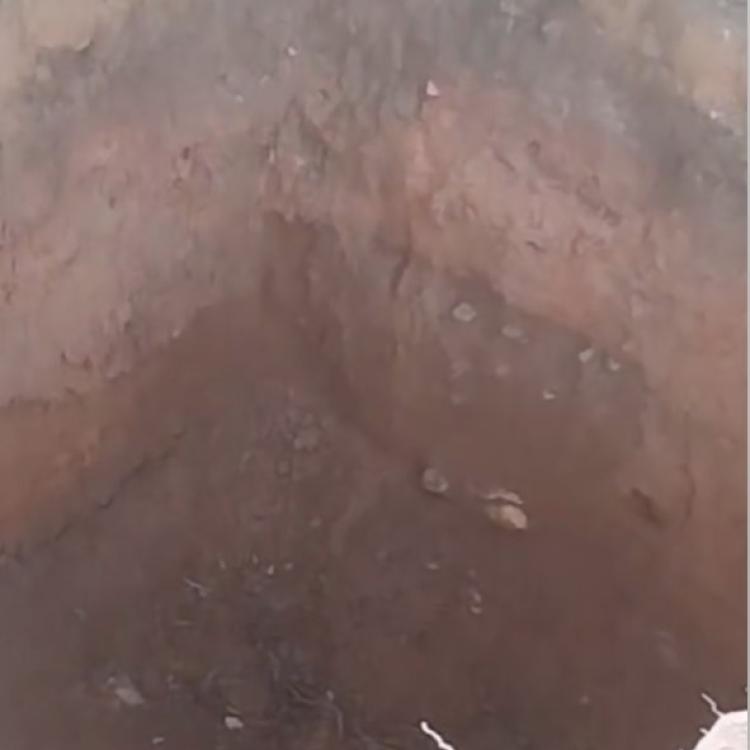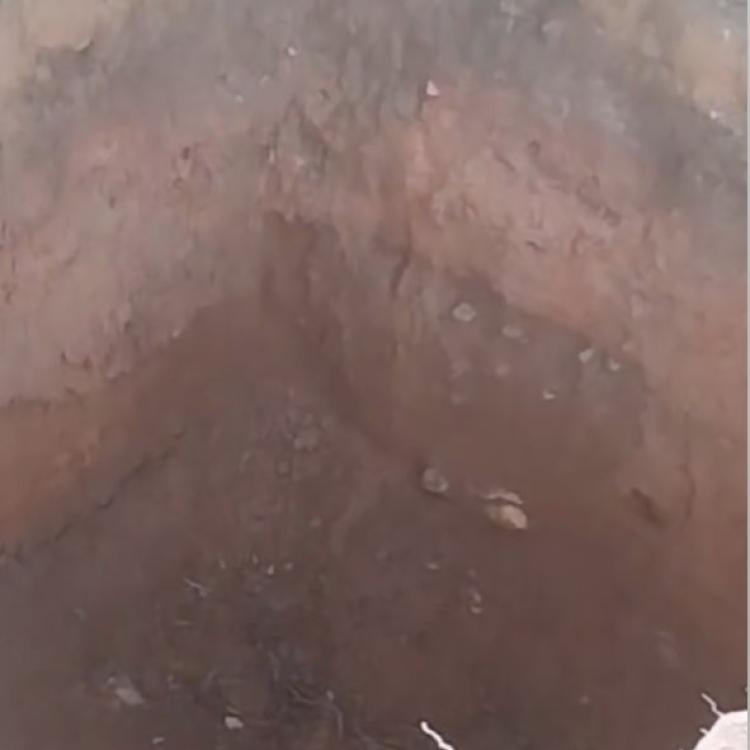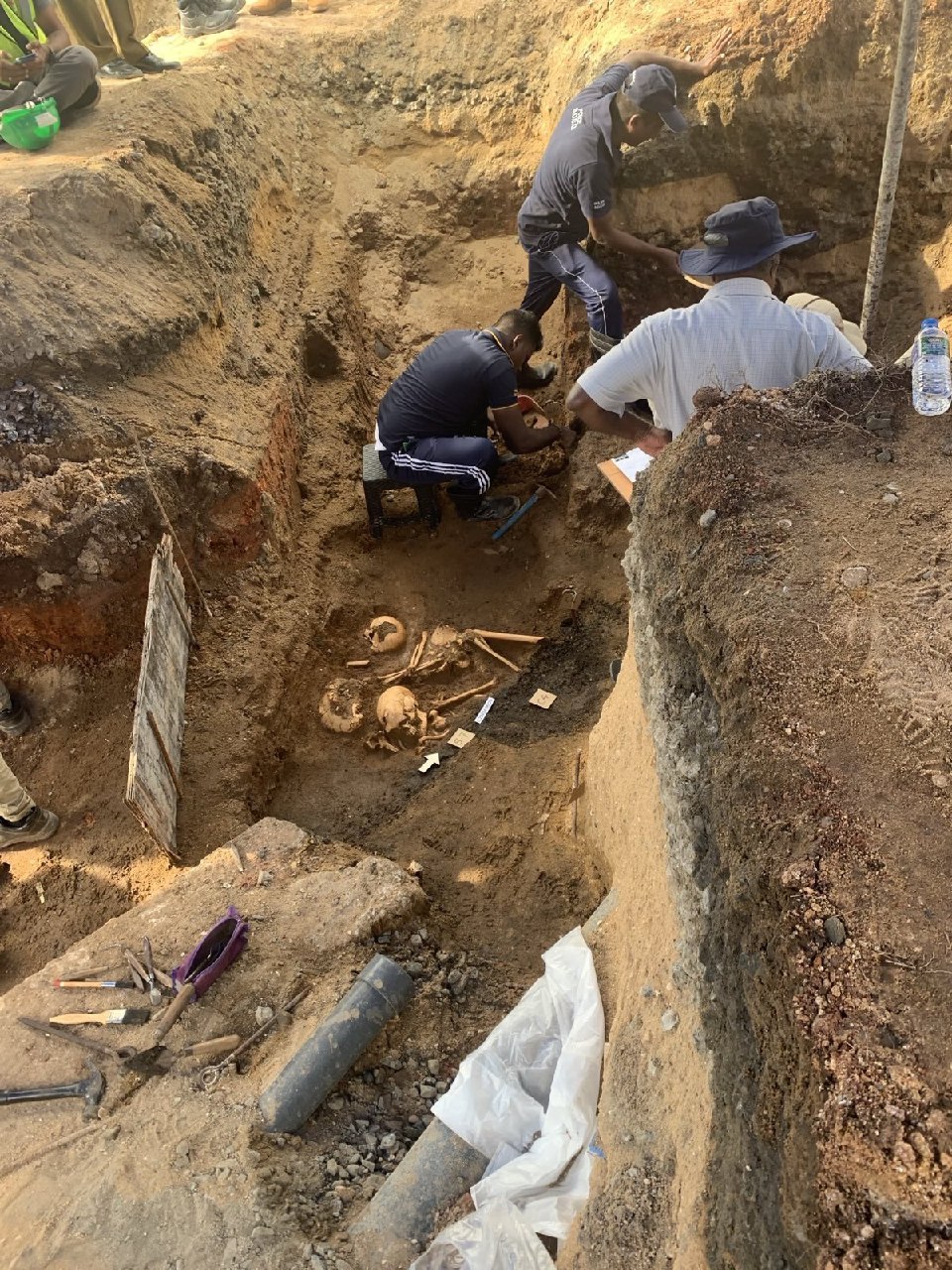
The excavation of a mass grave discovered in a high-security zone at Colombo Port has come to an abrupt halt due to a lack of funding, raising further concerns about Sri Lanka’s failure to properly investigate mass graves and ensure accountability for enforced disappearances.
The mass grave was first uncovered on 13 July 2024, when construction workers building an expressway to the Colombo Port stumbled upon human skeletal remains. Following legal proceedings, excavation formally began on 5 September 2024 under the supervision of Colombo Chief Magistrate Bandara Ilangasinghe. However, the first phase lasted only eight days, yielding at least two skeletal remains and four skulls before being paused on 13 September 2024.
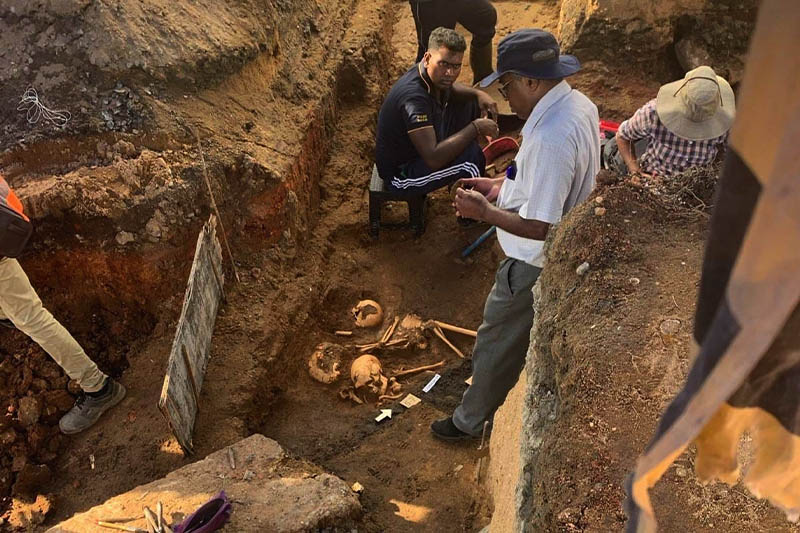
Subsequent excavation phases continued to uncover additional human remains. The second phase, which took place from 26 to 28 September 2024, unearthed more skeletal fragments. However, like the first phase, it was prematurely halted, delaying further forensic investigations.
Excavations resumed for the third phase on 27 January 2025, after a four-month delay. By 30 January 2025, six skeletons had been uncovered, and forensic archaeologists anticipated that further remains would be found. However, by 31 January 2025, the investigation was once again halted due to a lack of financial support from the Sri Lankan government.
Senior archaeologist Professor Raj Somadeva, who is leading the excavation, warned that if funding is not received soon, the site may have to be closed indefinitely. Journalists visiting the site noted that human remains were left submerged in muddy water due to the poor management of the excavation, according to Lanka Files. Despite a tent being erected on 30 January to protect the remains from sun and rain, it was not set up properly, leaving the site exposed to the elements.
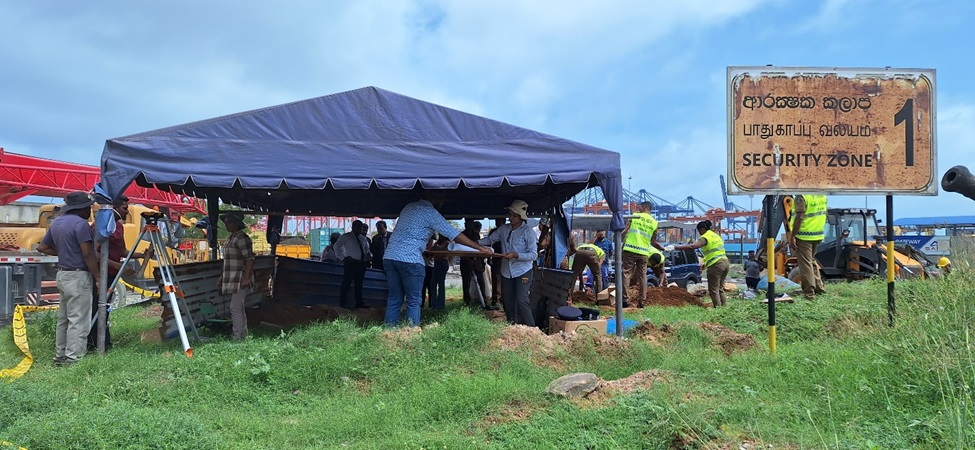
Authorities have restricted visits to the mass grave site, permitting observers—including the UN, the Office of Missing Persons (OMP), human rights activists, journalists, and relatives of the disappeared—to visit only during lunch breaks and after work hours.
The Sri Lankan Navy and police previously operated detention facilities in this area during the late 1980s and early 1990s, a period marked by widespread state violence, enforced disappearances, and extrajudicial killings.
The excavation at Colombo Port is not an isolated incident. Across the island, at least 32 mass graves have been identified, yet no perpetrators have ever been held accountable.
In Mullaitivu, the Kokkuthoduvai mass grave—discovered in June 2023, near the Kokkuthoduvai Central College—was closed on 15 July 2024 following a court order. Excavations at this site uncovered the skeletal remains of 50 people, with forensic reports concluding that the remains belonged to Liberation Tigers of Tamil Eelam (LTTE) cadres executed in the mid-1990s.
Sri Lanka has consistently failed to conduct transparent investigations into mass graves, with delays, government interference, and lack of funding frequently disrupting excavation efforts. Despite the existence of the Office on Missing Persons (OMP), the institution has done little to push for credible forensic investigations or accountability.
The discovery of mass graves in high-security zones, particularly in areas previously under military and police control, points to the systematic nature of enforced disappearances and extrajudicial killings in Sri Lanka.
With tens of thousands of Tamils still searching for their disappeared loved ones, the fate of those buried in Sri Lanka’s mass graves remains a painful and unresolved chapter in the island’s history.
